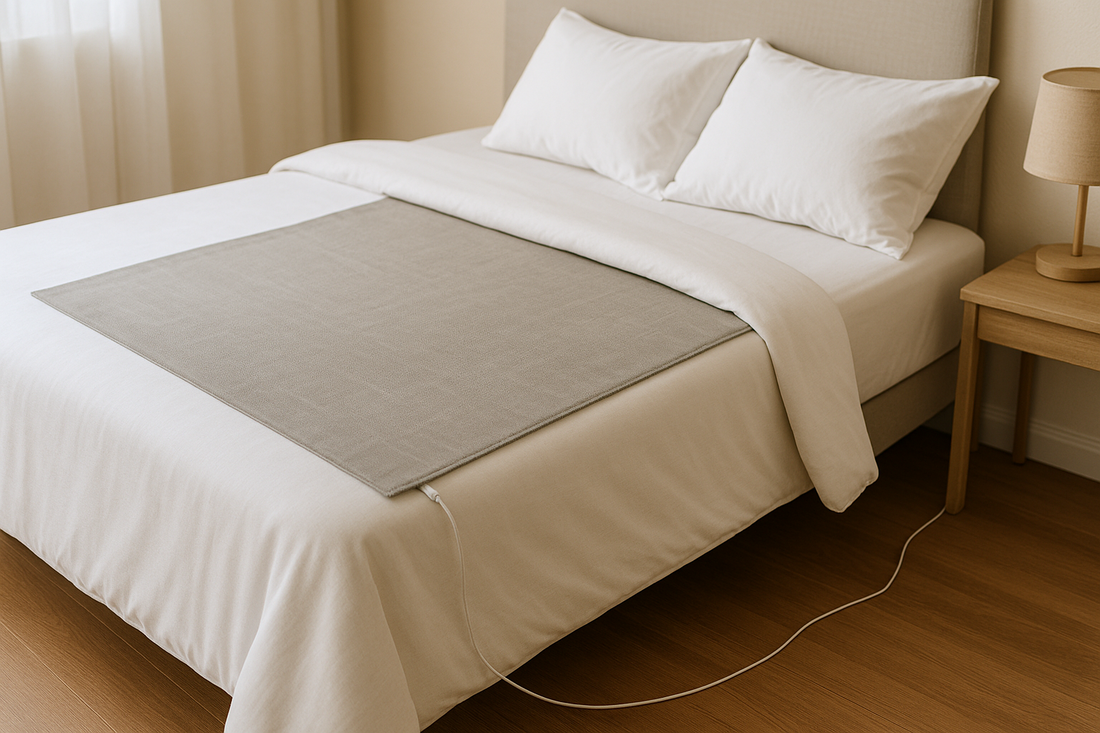
Grounding
Share
Reconnecting Through Sleep: The Grounding Mat Advantage
By Dr. Marisol Greene
Introduction
Grounding (also known as earthing) is the practice of connecting your body to the Earth’s natural electrical charge—traditionally by walking barefoot or lying directly on the ground. More recently, grounding sleeping mats have been developed to bring these benefits indoors. But what’s the science behind them, and do they actually help?
How Grounding Sleeping Mats Work
Grounding mats are embedded with conductive materials like carbon or silver fibers and connect to a grounded outlet. This connection is designed to allow negatively charged electrons from the Earth to flow into your body—even through layers like sheets or light sleepwear.Wellness Readers DigestGrooni EarthingWebMD
Research-Based Benefits
1. Improved Sleep Quality & Hormone Regulation
Studies indicate that grounding during sleep may lower nighttime cortisol levels and help align your natural circadian rhythms.ScienceDirectGrounding Mat
In another study, participants using grounding mats reported better sleep quality after several weeks.CQUniversity
A particularly compelling study published in the International Journal of Molecular Sciences found dramatic improvements after 21 days of grounding: they saw a ~15% reduction in waking time, an 80% increase in REM sleep, and a 78% rise in non-REM sleep.Sleep Review
2. Sedative Mechanisms (from Animal Studies)
Research using rats exposed to earthing mats showed reduced wakefulness and increased REM/NREM sleep. This was supported by neurologic changes like reduced orexin (a wake-promoting neuropeptide) and elevated SOD, an antioxidant enzyme.PMCPubMed
3. Reduced Inflammation & Pain Relief
Grounding has been associated with improved inflammation markers and antioxidant activity, potentially reducing pain and enhancing recovery.Sleep ReviewPremium GroundingTerra Wellness
A separate study even showed that users of grounding sleep mats experienced a 38% drop in chronic pain—compared to just 17% improvement in a non-grounded control group.BeGrounded
Mixed Evidence & Scientific Skepticism
While there’s promising data, broader scientific opinion remains cautious. Experts note that many studies are small, lack replication, or have methodological limitations. For example, some critics argue the concept of electron transfer neutralizing free radicals is scientifically vague and inadequately supported.The GuardianVerywell Mind
Still, preliminary findings on sleep and inflammation are encouraging enough to warrant further research.

